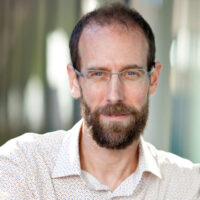
Date: March 30, 2023
Time: 12:30 p.m. - 1:30 p.m.
Location: Maeder Hall Auditorium
“Solar Geoengineering: Known, Unknown, and Unknowable”
David Keith
Gordon McKay Professor of Applied Physics, Paulson School of Engineering and Applied Sciences
Professor of Public Policy for the Harvard Kennedy School, Harvard University
Abstract
Solar radiation management (SRM) may enable a significant reduction in climate risks by partially offsetting climate change due to increasing greenhouse gases, yet this emerging technology entails novel risks and uncertainties along with challenges to global governance. Estimates of the risks and efficacy of SRM will remain uncertain, but some conclusions are known or are knowable with plausible research efforts. It is now possible, for example, to make some policy-relevant quantitative comparisons between risks and benefits. The answers depend in part on scientific questions that can be advanced through research. But they also depend, crucially, on choices of how SRM is used: on how much SRM is deployed, on what method is used, and on how the change in radiative forcing is distributed. One cannot estimate the risks or benefits of using SRM without specifying each of these policy choices. An SRM research program will need to iterate between assumptions about plausible use of SRM and evaluation of the consequences of such use.
Bio
Keith has worked near the interface between climate science, energy technology, and public policy since 1991. He took first prize in Canada’s national physics prize exam, won MIT’s prize for excellence in experimental physics, and was one of TIME Magazine’s Heroes of the Environment. David is a Professor at Harvard’s School of Engineering and at the Kennedy School. He is also founder of Carbon Engineering, a Canadian company developing technology to capture CO2 from ambient air to make carbon-neutral hydrocarbon fuels. Best known for his work on the science, technology, and public policy of solar geoengineering, David led the development of Harvard’s Solar Geoengineering Research Program, a Harvard-wide interfaculty research initiative. His policy work has ranged from analysis of electricity markets and carbon prices to research on public and expert perception of risky technologies. David’s hardware work includes the first interferometer for atoms, a high-accuracy infrared spectrometer for NASA’s ER-2, the development of Carbon Engineering’s air contactor, and the development of a stratospheric propelled balloon experiment for solar geoengineering. David teaches science and technology policy, climate science, and solar geoengineering. He has reached > 150,000 students worldwide with an edX energy course. David is author of >200 academic publications with total citation count of >18,000. He has written for the public in op-eds and A Case for Climate Engineering. David splits his time between Cambridge, Massachusetts and Canmore, Alberta.
All seminars are held from 12:30 p.m. to 1:30 p.m.
Lunch is provided at 12:00 noon.
Visit acee.princeton.edu/highlight-seminar-series for more info.